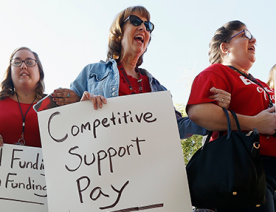
Unsecured personal information tops the list of concerns internet users have when it comes to the email, photos, and other information they put on the internet, and a majority of social media users are concerned about the threat hackers pose to information they share, according to an April 2018 AP-NORC Poll. These findings shed new light on online users’ fears about privacy and data security in the wake of the Facebook privacy scandal involving the political consulting firm Cambridge Analytica, which acquired the private data of up to 87 million Facebook users without their permission.
Six in 10 internet users are concerned that online companies don’t properly secure their personal information and half worry that companies will retain their data even if they take steps to delete it themselves. Fewer are worried about their location tracking or their personal photos or other information being used in marketing campaigns.
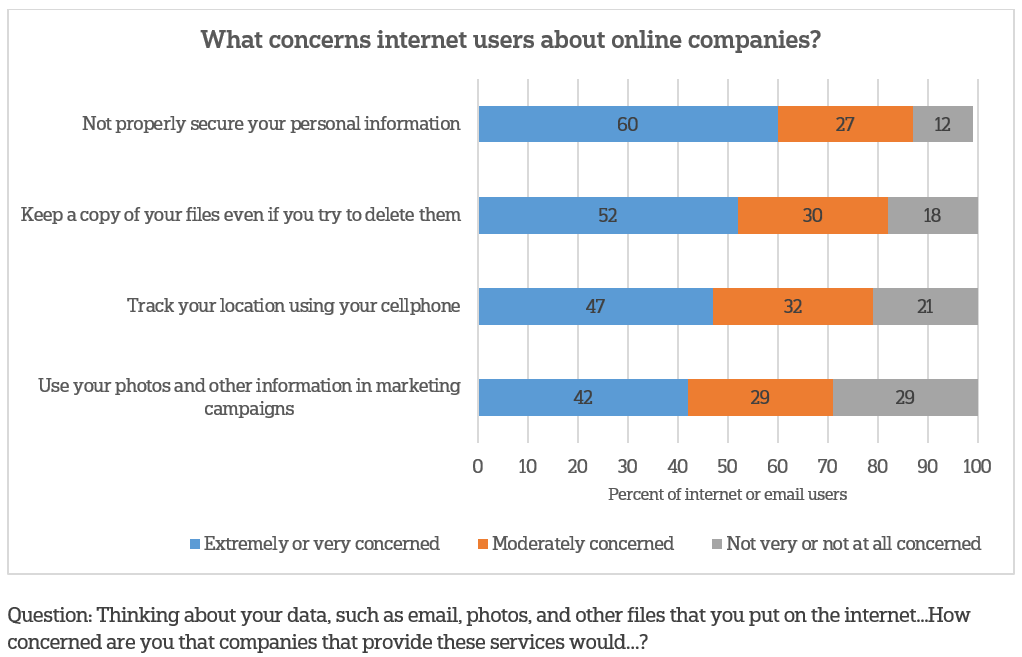
Seven in 10 social media users are concerned about the threat hackers pose to their privacy. About half are concerned about third parties, such as advertisers or businesses, and foreign governments or agents of foreign governments. Fewer worry about the U.S. government, political campaigns, or law enforcement agencies gaining access to the information they share on social networking sites.
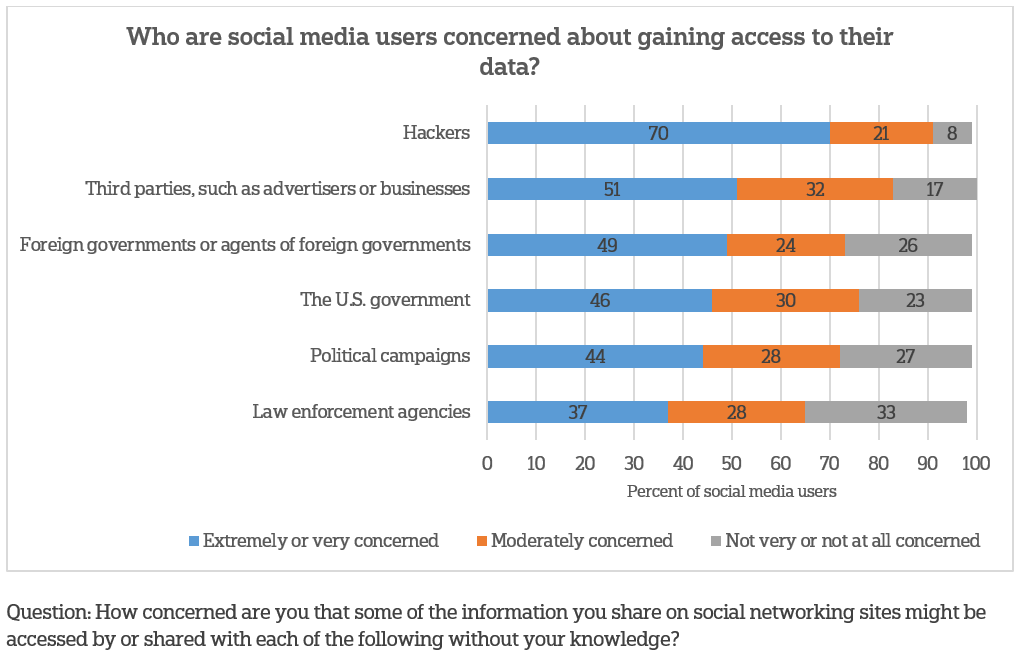
In response to the privacy scandal, many Facebook users are re-thinking the way they use social media. Sixty-nine percent of Facebook users who have heard at least something about the scandal have made at least one change in response to the recent privacy scandal.
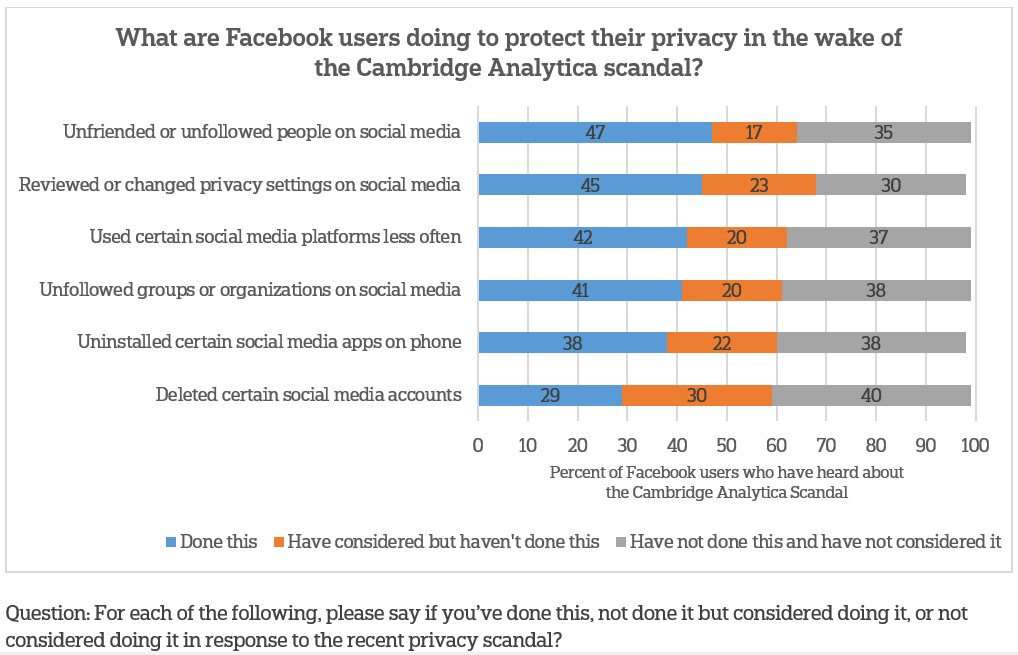
Few Facebook users find the privacy settings difficult to navigate. Eighteen percent say that overall it is difficult to manage the privacy controls on their Facebook profile, 37 percent say it is moderately difficult, and 43 percent say it’s not difficult.
When it comes to protecting the privacy of social media users, Americans say social media companies and individual users bear the most responsibility. Fewer than half say the federal government should have a large responsibility for protecting online privacy.
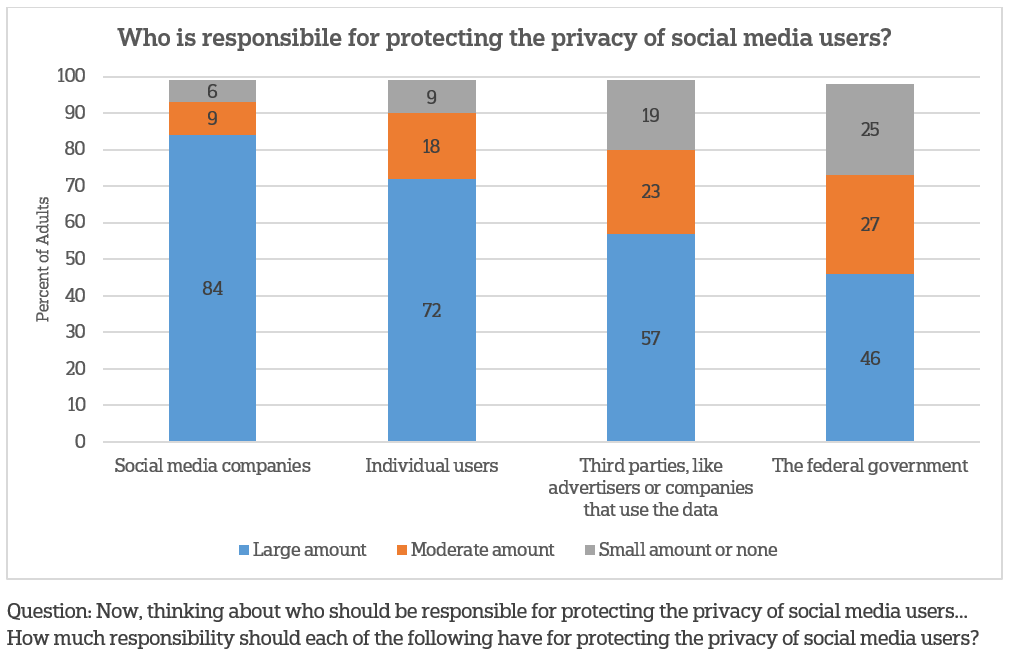
Few internet users read the terms and policies that must be agreed to before downloading certain social media phone or tablet apps. Just 15 percent say they always or frequently read these conditions before accepting, 22 percent say they sometimes read them, and 60 percent say they hardly ever or never read them.
The survey also finds that a majority of Americans want online data security even if it means it would come at a price. Sixty-three percent said that online companies such as Google and Facebook should not sell users’ private information to a third party, even if it means charging a fee to use their services that might be unaffordable to some people, while 35 percent say it’s better to keep services provided by online companies free and accessible, even if it means that private information might be sold to a third party.
When it comes to using passwords to protect their online data, few internet users change their passwords regularly or use a program to manage their passwords.
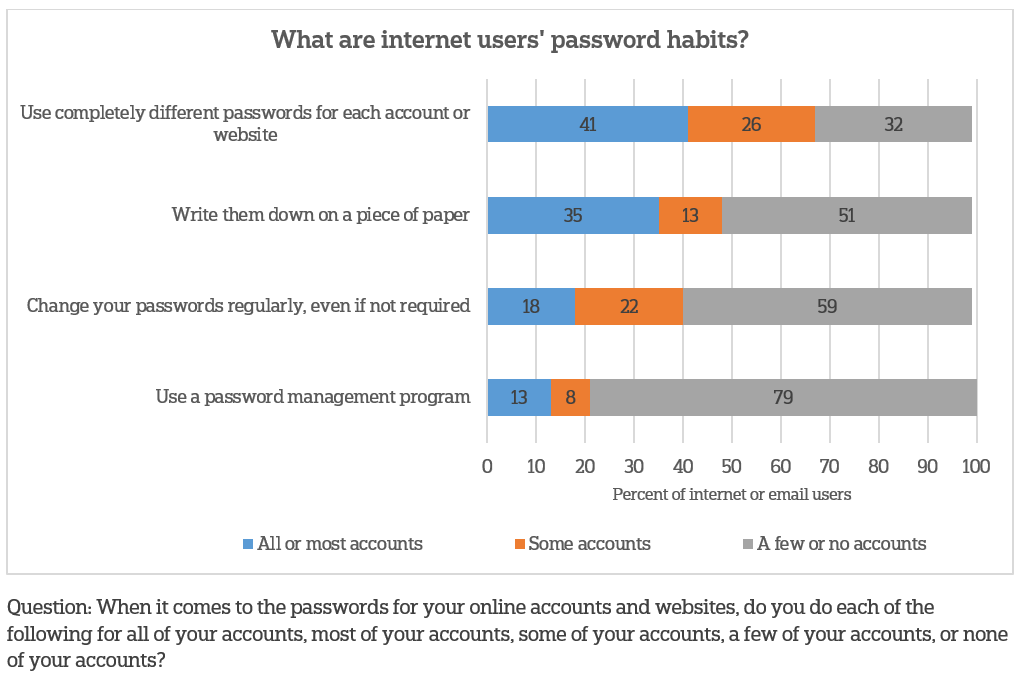
The nationwide poll was conducted April 11-16, 2018 using the AmeriSpeak® Panel, the probability-based panel of NORC at the University of Chicago. Online and telephone interviews using landlines and cell phones were conducted with 1,140 adults of whom 1,047 use the internet or email. The margin of sampling error is plus or minus 4.0 percentage points for all adults and plus or minus 4.3 percentage points for internet or email users.


